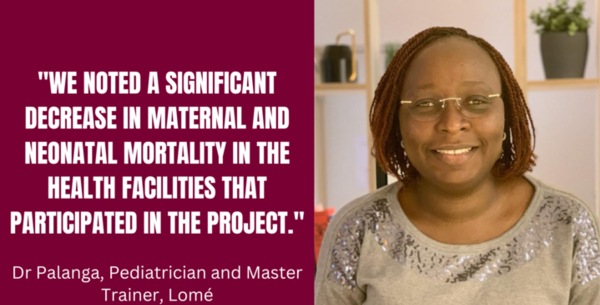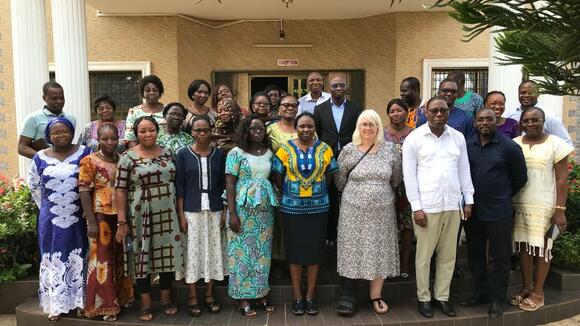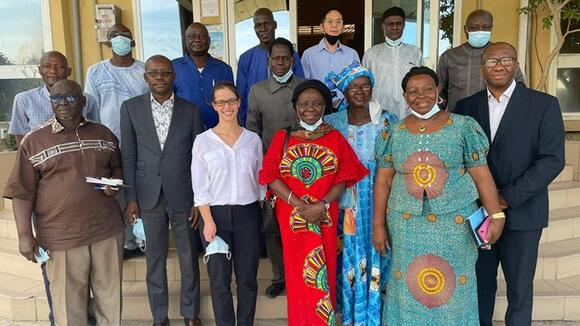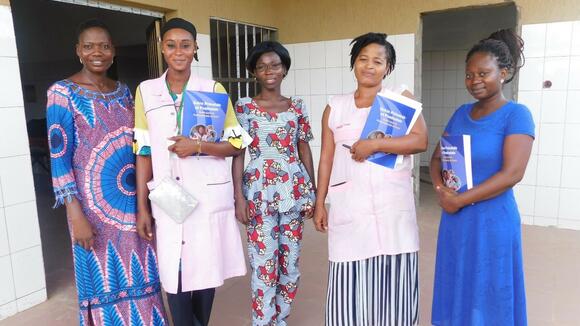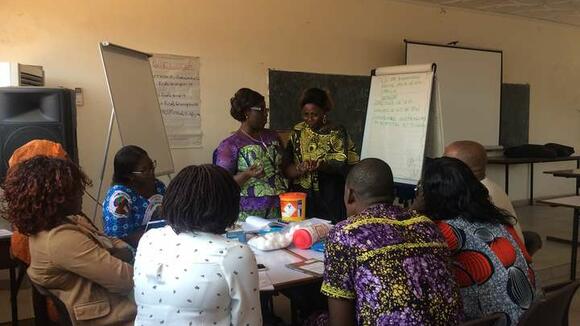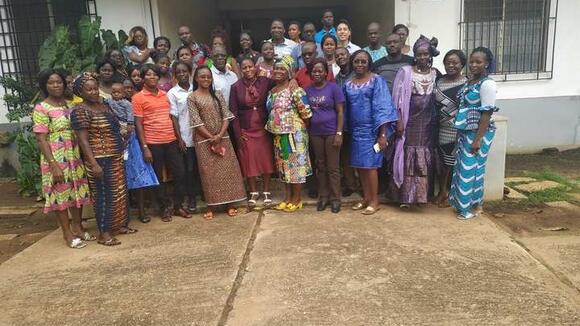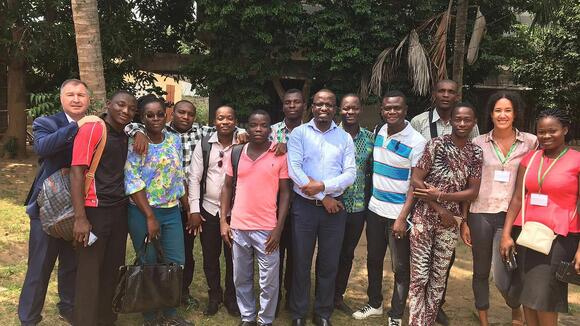
Togo
Supporting capacity building and strengthening health systems, to promote integrated, people-centred health services.
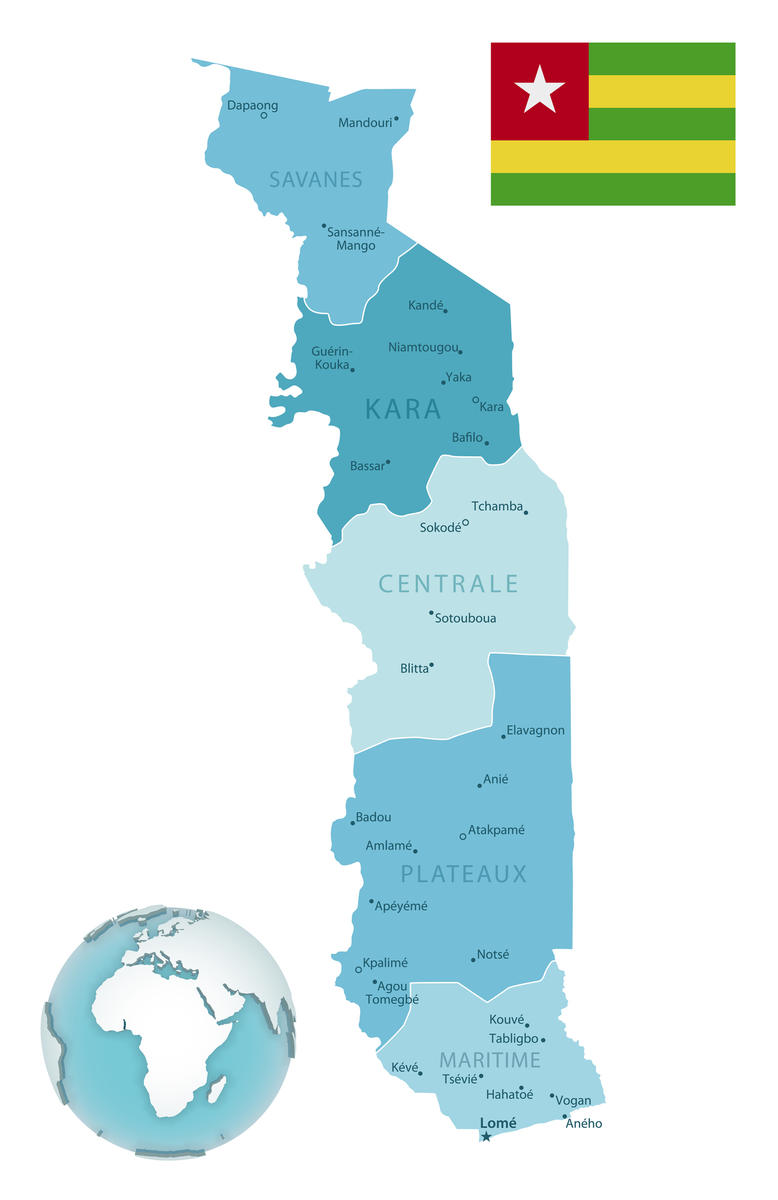
Located on Africa’s west coast, Togo is bordered by Ghana, Benin, and Burkina Faso and is home to approximately 7.8 million people. Although the poverty rate fell from 61.7% in 2006 to 53.5% in 2017, poverty and inequality remain extremely high, particularly in rural areas where 69% of households were living below the poverty line in 2015.
This is largely attributable to a high annual population growth rate of 2.5% that is outpacing development progress, concentrated economic growth in the modern sectors, and limited access to quality services. Poverty is also higher in female-headed households (57.5%), and vulnerability is higher among women because they have fewer economic opportunities.
Togo’s score on the human capital index (HCI) remains low at 0.41. This means that children born in Togo today will be only 41% as productive when they grow up as they could be if they had access to good health, education, and nutrition.
Maternal and newborn health in Togo
Poor maternal and child health outcomes and mortality rates in Togo have remained persistently high over the past decade despite multiple reforms and substantial changes to health policy in Togo. While a great majority of women receive at least one ANC visit (93%), the proportion of those attending four or more visits drops to 57%. At the level of postnatal care, 71% of mothers receive a postnatal visit within the first 48 hours of delivery, but only 35% of babies do so. The number of maternal deaths per 100,000 live births is estimated to be 396, placing Togo in the 152nd position of 183 countries globally. For newborn mortality, Togo ranks 195th of 239 countries globally based on 2017 statistics.
Regarding the specific diseases of HIV, TB and malaria, data for the overall population suggest a substantial burden of diseases with prevalence rates at 3% for HIV, and incidence rates of 41 (per 100,000 population) for TB and 371 (per 1000 population at risk) for malaria.
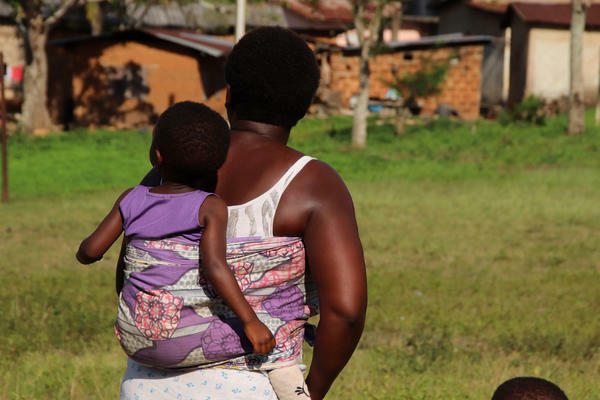
Our work in Togo
Funded by the Global Fund to Fight AIDS, Tuberculosis and Malaria we have started to work in Togo in 2017. Our aim is to improve the availability and quality of integrated antenatal (ANC) and postnatal (PNC) services, including HIV, tuberculosis and malaria control in health facilities, thereby improving health outcomes with the long-term goal of Supporting capacity building and strengthening health systems, to promote integrated, people-centred health services.
Current programme: 2021 to 2023
Our work is now entering in its third phase with a duration from 2021 to 2023. The main goals are:
Support and additional training for the 62 initial healthcare facilities in the regions of Lomé, Plateaux and Savanes
- Standards-based Audit training for the 44 healthcare facilities not yet trained
- Support and quality assurance for all healthcare facilities
Scale-up to 50 new healthcare facilities including new in Kara, Central and Maritime regions
- Training for Master trainers in the 3 new locations
- ANC-PNC and Standards-based audit training for all healthcare facilities
Supportive supervision
- Supportive supervision training
- Quarterly supervision by Ministry of Health, national disease programmes and Master trainers at district level for all HCF building
- Coordination of supervision system and District Health Information System

Audio statements from our partners and stakeholders in Togo on impact of capacity strengthening in quality improvement and availability of ANC-PNC services
Poor maternal and child health outcomes and mortality rates in Togo have remained persistently high over the past decade despite multiple reforms and substantial changes to health policy in Togo. In 2017, LSTM have started to work in Togo in partnership with the University of Lomé in charge of implementing the programme to improve the availability and quality of integrated antenatal (ANC) and postnatal (PNC) services, including HIV, tuberculosis and malaria control in health facilities.
Completed projects
First phase in 2017
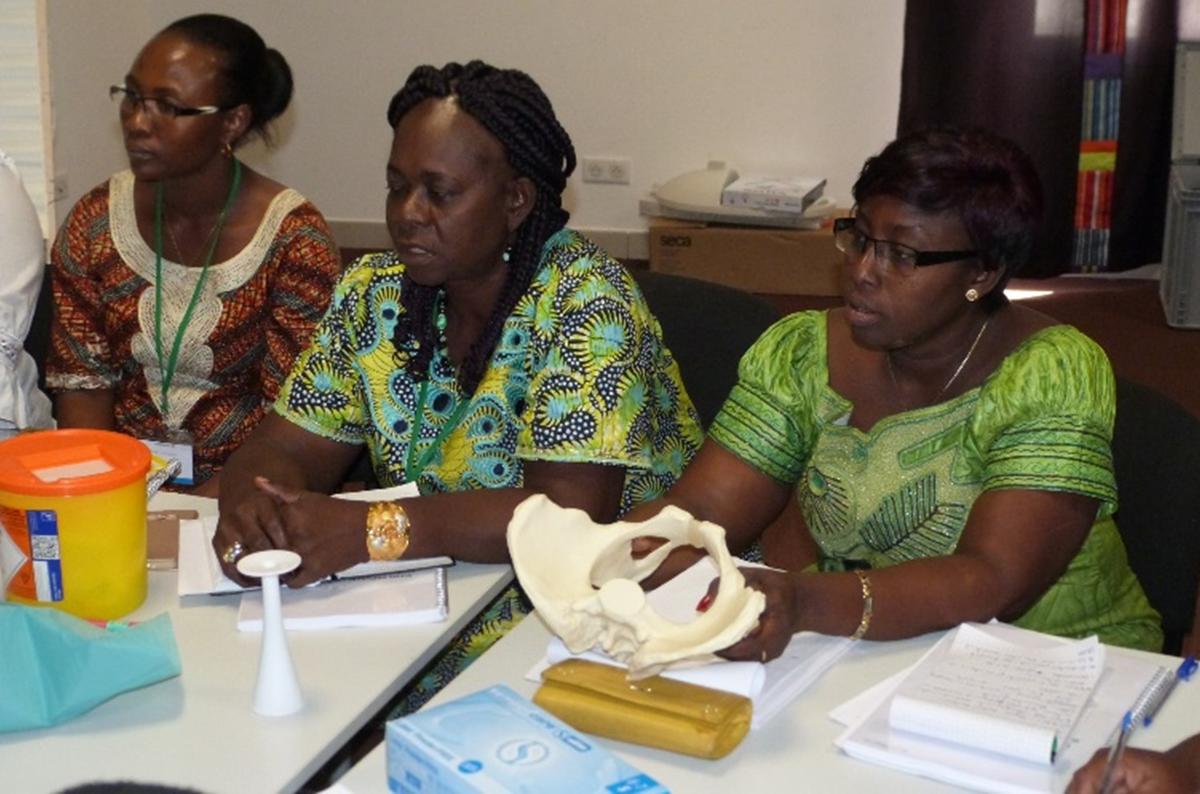
In this initial phase, establishing nationally adapted standards of care for ANC-PNC, and a baseline of information on the availability and quality of care offered in healthcare facilities across the country was a key priority for the government to identify gaps to be addressed. Specific standards were developed, alongside capacity strengthening packages and manuals. The initial Health Facility Survey (HFS) was conducted in 3 regions (Lomé, Plateaux and Savanes), in a selected sample of 62 healthcare facilities (HCF), comprising a mix of public, private and faith-based facilities at primary, secondary and tertiary levels of care. The HFS results raised concerns over the unfulfilled potential for identifying and managing those who need support in the areas of HIV, TB and malaria and other integrated services, despite good availability of consumables, thus offering a strong platform for improvement in content and quality with integration across the three main diseases.
To prepare the capacity strengthening activities of Phase 2, a national pool of national master-trainers (MT) was trained in ANC-PNC (18) and Standards-based audit (12) with representations across the 3 regions of intervention.
Second Phase 2019 - 2020
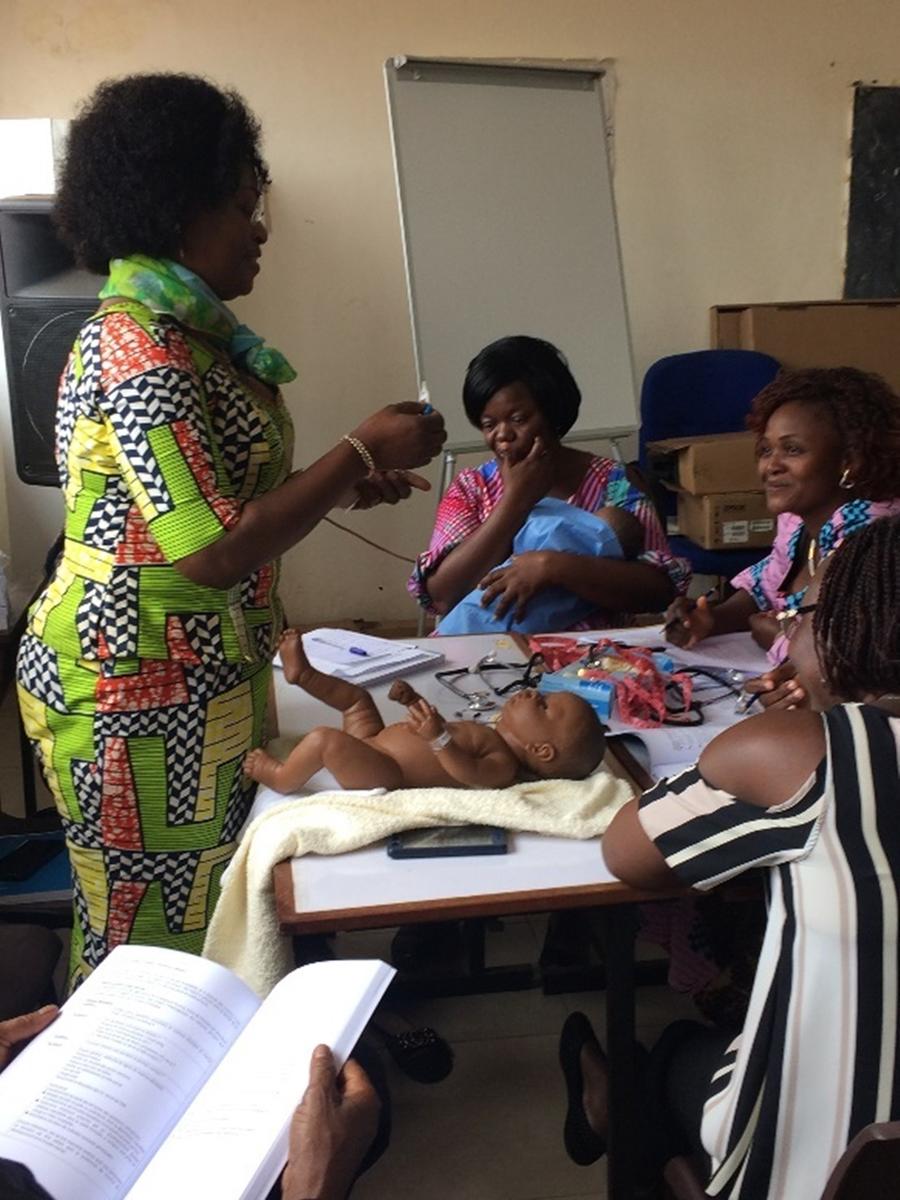
In Phase 2 we continued our work in strong partnership with the University of Lomé and the Programme Management Unit (UGP) of the Ministère de la Santé et de l'Hygiène Publique to strengthen the capacity of healthcare facilities in providing integrated ANC-PNC, including HIV, TB and malaria control, and to conduct quality improvement activities. This included:
- Training of 62 healthcare providers in StBA from 18 selected HCF with equal distribution in the 3 regions
- Training of 505 healthcare providers in ANC-PNC from the 62 HCF
- Distribution of essential equipment to the 62 HCF
- Quarterly QI review meetings
- Stakeholders’ meeting and joint supervision of implementation
The implementation programme was accompanied by embedded research, notably a Stepped-wedge randomized controlled trial carried in the 18 selected HCF, a novel and rigorous approach to assess the effectiveness of the programme’s interventions, as well as operational research studies on ANC-PNC cadres mapping in Togo, and the state of respectful care in ANC-PNC.
Partners
| The Ministry of Public Health and Hygiene and Access to Universal Health (Ministere de la Sante et de l’Hygiene Publique et de l’Acces Universel aux Soins – MSHPAUS) in Togo guides the program’s strategy and targets to meet national priorities in MNH. Under the General Secretary for Health, the Directorate for Mother and Child Health (Direction de la Sante Mere-Enfant) and the Directorate for Healthcare and Readaptation Facilities (Direction des Etablissements de Soins et Readaptation – DESR) are respectively involved in shaping the ANC-PNC and QI package, as well as facilitating the program’s activities. The MSHPAUS hosts the Project Management Unit (Unite de Gestion des Projets – UGP), who as Global Fund Principal Recipient for HIV, TB and Malaria, is the program’s donor. | |
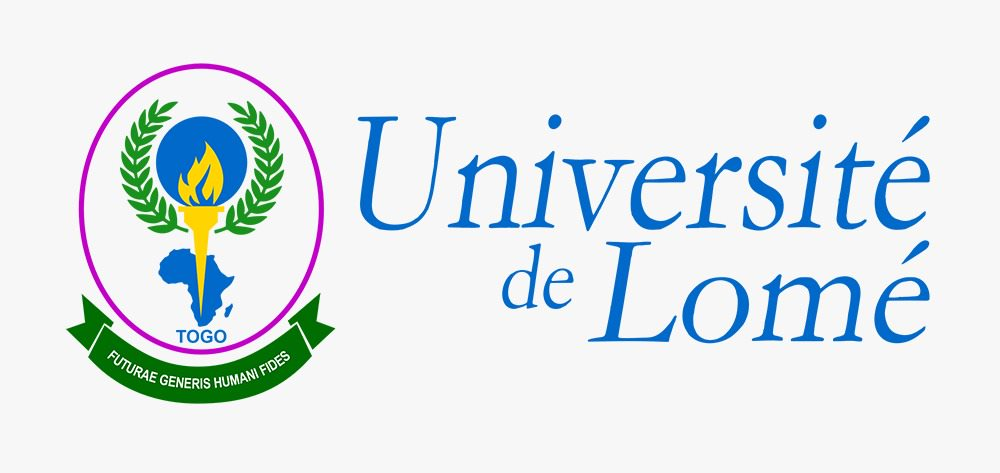 |
The University of Lome (UL) is the Unit's main implementation partner in Togo. As a recognized high-standard academic institution, UL leads on research and education excellence in Togo. The UL contributes to the design of GFAPU research protocols and national capacity strengthening strategy. UL employs the LSTM in-country team and coordinates the administrative as well as logistic support for all activities. The partnership between LSTM and UL goes beyond the implementation of projects and aims for a dynamic co-construction of both entities, through discussion on collaborative research, joint grant-seeking and exchange of good practices. |
LSTM team
Dr Marion Ravit (Senior Research Associate), marion.ravit@lstmed.ac.uk, phone+44 (0)151 702 9535
Dr Helen Allott (Senior Technical Officer), Helen.allott@lstmed.ac.uk(link sends e-mail), phone+44 (0)151 702 9354
In-country team
• Dr. Bakusa Dankom: Togo Senior technical officer (National coordinator)
• Mr. Koami Edoh: Togo Admin program coordinator (Admin and Finances)
• TBC: M&E officer
International team
Key-partners and resource persons
• Pr. Guillaume Koffivi Ketoh: National focal point, UL
• Mr. Kodjo Gabriel Hlomadon: Chief accountant, UL
• Dr. Abram Agossou: Director of Mother-Child Health (MSHPAUS)
• Dr. Madeleine Tchandana: Head of the Mother-Infant & Reproductive Health Division (MSHPAUS)
• Dr. Baba Amivi Afefa: Director of Healthcare and Readaptation Facilities (MSHPAUS)
Completed studies
Healthcare facility baseline assessment on antenatal and postnatal care, with specific focus on HIV, TB and Malaria in selected healthcare facilities in Togo – Completed in 2018
Crossed randomised stepped wedge trial to assess the effectiveness of standards-based audit and healthcare provider training on the availability and quality of Antenatal (ANC) and Postnatal Care (PNC) in Togo – August 2019 to December 2020
Mapping of Health Cadres who provide ANC and PNC in Togo – October 2021
A study to measure women’s perception of respectful maternity care during and after pregnancy (antenatal and postnatal care) in public healthcare facilities in Togo – October 2021
Healthcare facility baseline assessment on antenatal and postnatal care, with specific focus on HIV, TB and Malaria in selected healthcare facilities in Togo (50 new healthcare facilities) – October 2021
Togo blog
References
https://www.worldbank.org/en/publication/human-capital
https://data.worldbank.org/indicator/SH.STA.MMRT?locations=TG&year_high_desc=false
https://data.worldbank.org/indicator/SH.DYN.NMRT?locations=TG&name_desc=false
https://www.who.int/gho/maternal_health/countries/tgo.pdf?ua=1
http://countdown2015mnch.org/documents/2013Report/Togo_Accountability_profile_2013.pdf
